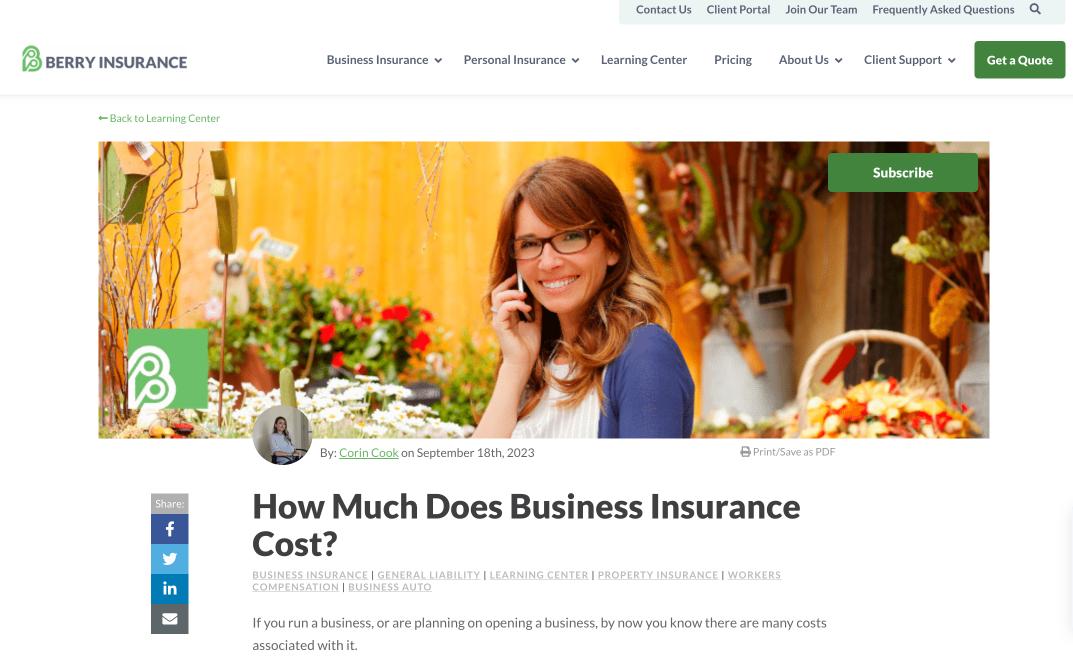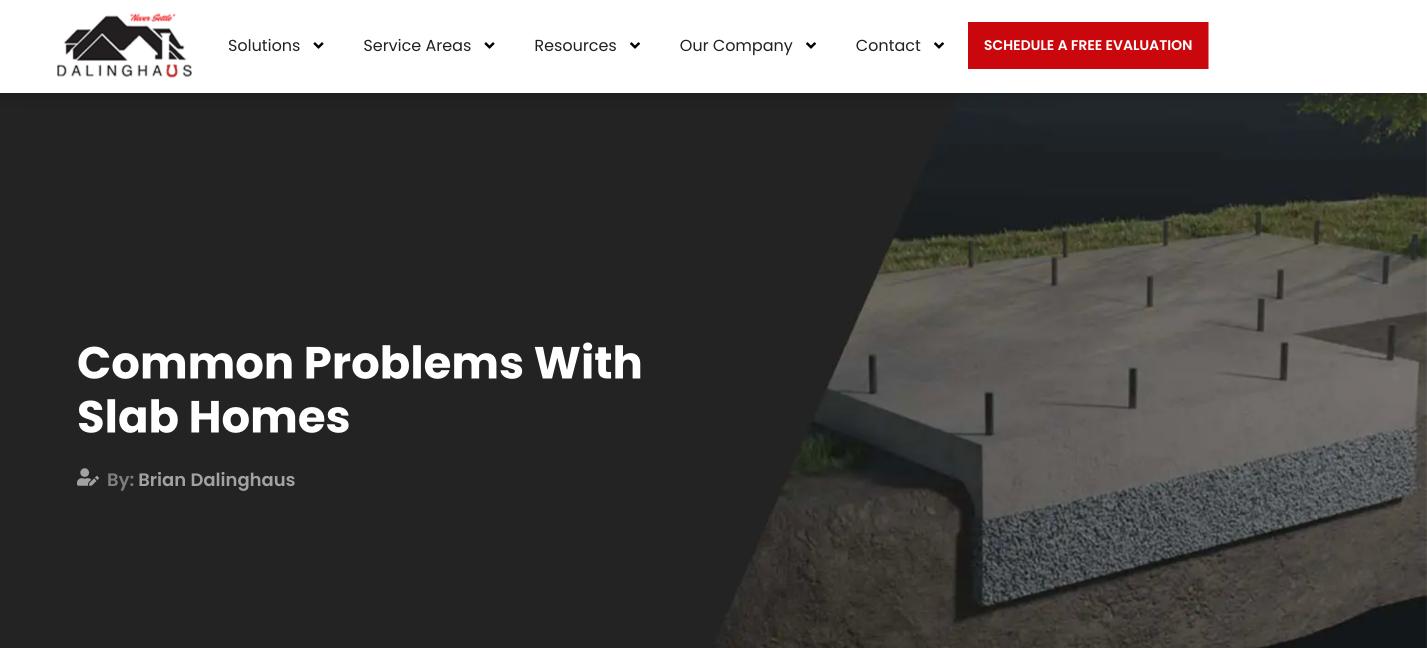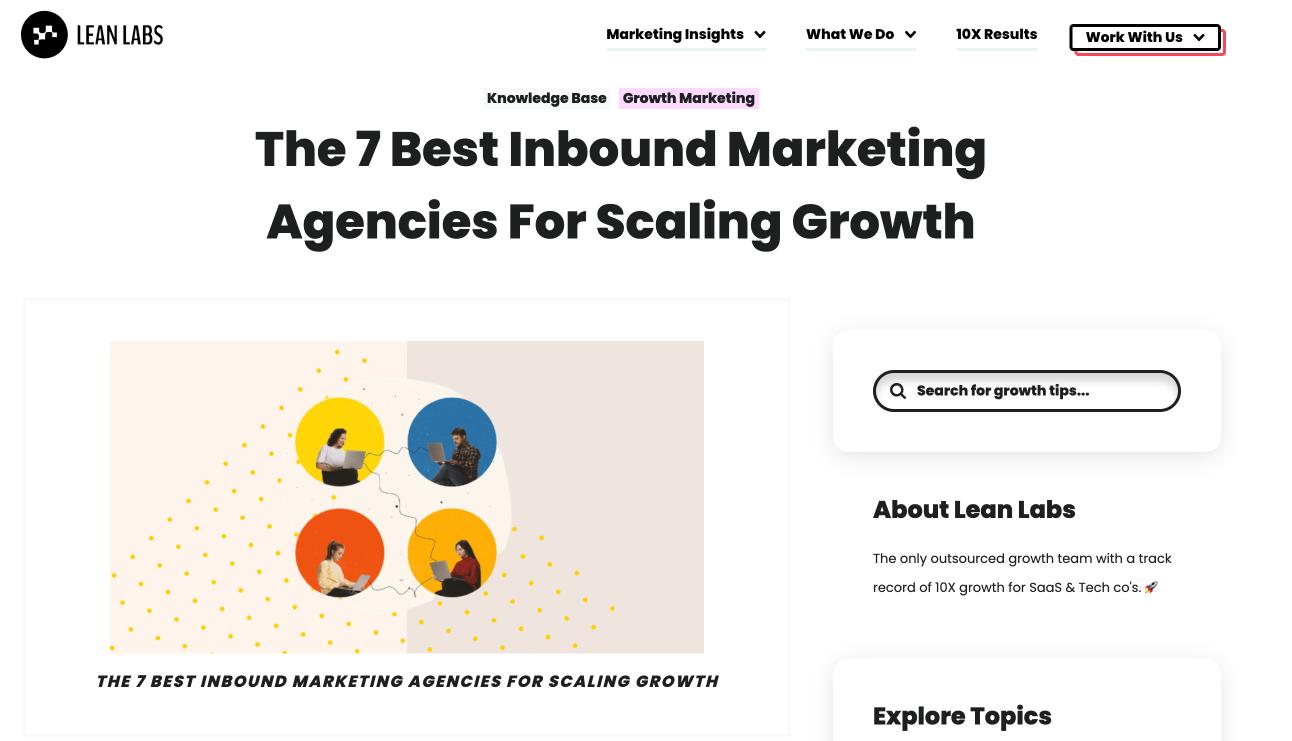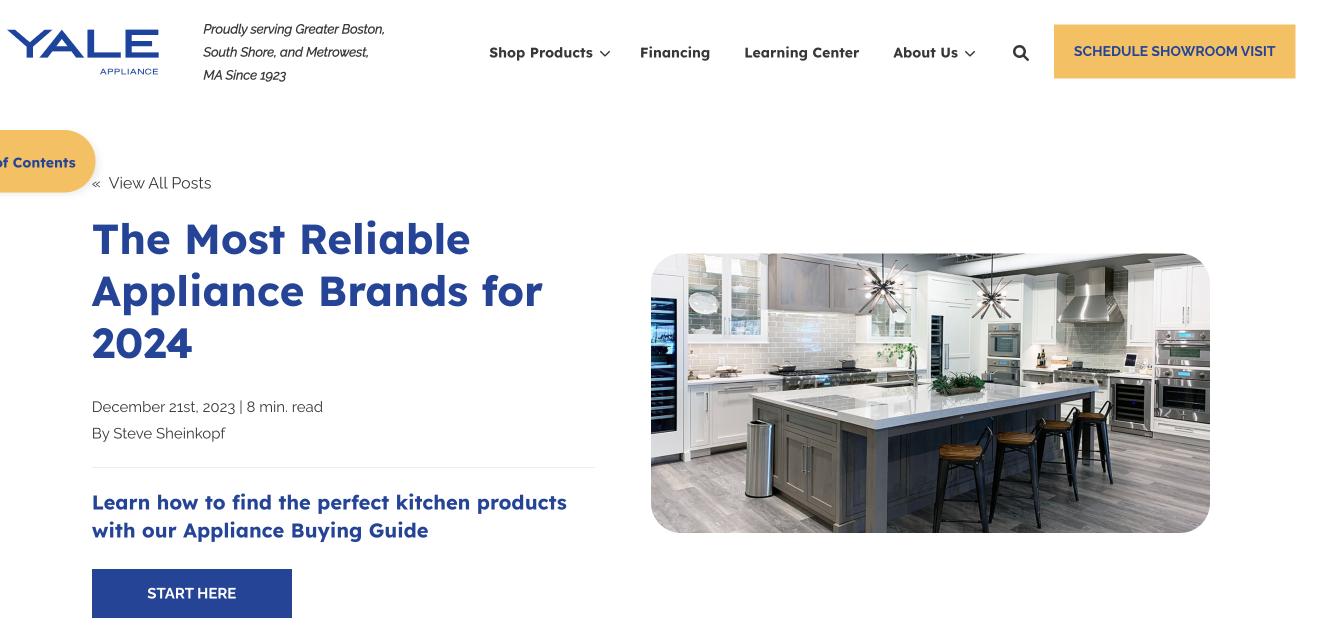Subscribe now and get the latest podcast releases delivered straight to your inbox.
'The Big 5': Best Business Blog Topics to Drive Traffic and Sales (+ examples)

Oct 17, 2024
Best business blog topics
- Explain cost and pricing — and what factors make those numbers go up or down.
- Be open about the problems, shortcomings, and drawbacks of what you sell.
- Compare several products or services so the buyer can understand the differences.
- Produce "Best of" lists that cover best in class, best practices, and more.
- Create (or collect) helpful reviews from experts and past customers.
Listen on
View the full transcription of this episode.
__
Aruoture Oddiri: Emeka, it's a pleasure. Thank you, guys, for having me. You guys are doing some great work with your Pod at PwC.
Host: Thank you. Thank you. That's what the PwC experience is all about. Maybe I'll start by saying I'm a big fan of your work. And it's a big honour sitting here with you. And I'll just ask, how does it feel to be interviewed? You know you’re always the one doing the interview, how does it feel?
Aruoture Oddiri: So yeah, I know. It’s a bit surreal. ‘Cause I'm on the other side. But, look, I'm humbled that you guys watch the show. We have a responsibility to the public to give them the news as it happens, to be factual and balanced. And so, it's great to be here.
Host: Absolutely, and you guys are doing such a great job.
Aruoture Oddiri: Thank you.
Host: So let's talk with some background. For those who may not be familiar with you, Mr Arouture, can you tell me if I'm getting the pronunciation right?
Aruoture Oddiri: Yeah, you are. So it’s ‘arrow’ and then the number 'two' and a 'ray' of sunlight—Aruoture. There you go.
Host: Nice. I wish I had such an explanation for my name, Emeka. But I'll think of something. I can only think of a 'car' at the end. I will look for something for ‘Eme’ later. So in a few sentences, can you tell us about yourself? You have a decade's worth of experience as a research analyst. What spurred you to join Arise News?
Aruoture Oddiri: Emeka, it was complete luck, me even getting into journalism in the first place. I came home, I think about 2010, from the United States after being there for about 12 years and having an internship. I was doing NYSC in one of the financial services companies here in Nigeria. And I was just in traffic and listening to Smooth FM while they were doing the newspaper review. I started sending text messages and interacting because the traffic was so long and I was just sitting there for hours. And it just so happened that they were looking for reviewers for their paper review. So one day while the show was off-air, they sent me a message saying, ‘Hey, we appreciate your insights. Would you like to join us to review newspapers?’ And then, I now took over Business Express which, funny enough, was hosted by one of your prior guests—Tunji Andrews—I think he was on the pod previously. So he asked me if I wanted to take over, I did and then started getting paid for it. So that was radio. From there I went to Nairametrics, started writing for them as a Chief Marketing Officer, then Business Insider as an editor, running teams in Lagos, Accra and Nairobi, and then Arise News just happened to be looking for a business anchor for the Global Business Report. And so Ugodre, who heads Nairametrics, made a recommendation.
Host: Wow.
Whether you call it content marketing, inbound marketing, digital marketing, or business blogging, a common question I get asked is, “Marcus, what the heck should our business be writing about?”
The right content can help your business grow, no matter your industry, but there are a lot of low-value articles being published these days under the mantle of “content marketing.”
This "fluffy" content may give you quick boosts in traffic but, ultimately, it does nothing to increase your bottom line or help your sales team reach their revenue goals.
In reality, it just creates more noise.
Now, every healthy content marketing strategy covers a mix of topics, and have pieces for readers at different stages of the buyer's journey, but if you're just getting started or failing to see results, you need to zero in./They%20ask%20You%20answer%20-%20highres.jpg)
If you’ve read my first book They Ask, You Answer, you know that I recommend publishing articles answering every question your customers ask — even if makes you uncomfortable.
(Actually, ESPECIALLY if it makes you uncomfortable.)
When you do that with regularity and consistency, you’ll quickly establish yourself as the No. 1 most trusted resource in your space. And today, that is the key to winning over your more modern, sophisticated, internet-enabled buyers.
It really is that simple, but it's important to remember, the scope of questions your customers will potentially ask you is limitless.
That's why, after some time of following these principles for my own business, River Pools and Spas — as well as with hundreds of other clients — I decided to review the data to see if there were any patterns or trends I could identify.
Specifically, I wondered whether the content being published directly correlated to traffic, leads, and sales — the three most critical metrics for any business with a digital sales and marketing strategy.
Lo and behold, I found five specific blog categories — which we now call The Big 5 — consistently outperformed every other blog topic out there, regardless of what industry happened to be publishing them.
In this article, we will:
- Dive into each of The Big 5 topics
- Share great examples of each topic to inspire you
The Big 5: Blog topics that work for any industry
According to Google, most shoppers say they always do research before they make a purchase to ensure they are making the best possible choice.
The Big 5 blog topics are catered exactly to this. You may be surprised at how deceptively simple these topics seem. They are:
- Cost and pricing — including what factors make those numbers go up or down.
- "Problems" content that explains the problems, shortcomings, and drawbacks of what you sell.
- Comparisons that put several products or services next to each other so the buyer can understand the differences.
- "Best of" lists that cover best in class, best practices, and more.
- Reviews from experts and past customers.
Below, I'll show you actual examples of each of these topics, whether from IMPACT's own blog or from other businesses (some of which are clients). This way, you can see real-world content that's answering buyer questions and building trust — even when the subject matter is complex.
1. Cost and price
When was the last time you went online to research a product or service before you made a purchase? At a minimum, within the last six months, right?
Maybe you bought a new boat for the family, hired some kind of contractor, or were looking for a new IT service provider for your company. At any point in your research, did you ask how much that thing costs?
If you’re like most modern buyers out there, yeah, of course you did. But, I’ll bet at some point, you were on a company’s website looking for information about costs, but couldn’t find clear answers.
And when you couldn’t find those answers, how did you feel about that company? Frustrated? It sure didn’t help your confidence in them, did it?
Too many companies don’t want to talk about costs on their website — and it’s typically for all the wrong reasons. These might even be the reasons your company hasn’t written about costs yet.
Do any of these excuses sound familiar?
- "But our product/services are custom-designed for individual situations."
- "But then our competitors would know what we’re charging."
- "But we might scare prospects away before we can explain the costs to them."
I see where you’re coming from. I was once there too. But let’s take a look at these reasons one by one.
Why people object to writing about cost and price
1: "But our product/services are custom-designed to individual situations"
I get it, each project you do is different. Many factors influence the final costs. Prices can vary. The best short answer you’ve got to how much you charge is: “Well, it depends.”
Your buyers get that. They don't expect an exact number. Write about the factors that influence costs and at least give a range of possible rates. It’s that simple.
2: "But then our competitors would know what we’re charging"
Let me ask you this: Do you know what your competitors charge? You probably have some idea, just like they already have some idea of what you charge.
Go look at their website. Are they discussing costs? If so, you better catch up. If not, it’s your chance to get ahead of them.
3: "But it might scare away prospects"
If you are up-front about your pricing and what drives your cost up or down and someone walks away because they can't afford you, all you've lost is a lead that was never going to close.
Being clear about your cost helps people qualify or disqualify themselves early on.
Even if they can afford you, this honesty also fosters trust. You weren't trying to hide things and surprise them with a price tag. You let them know exactly what to expect. People want to do business with companies they can trust.
Examples of cost articles
Our article, "How To Write an Effective Cost Article for Your Business" dives deeper into the steps of writing this kind of content, but in the meantime, check out these examples of it done right:
2. 'Problems' content
Another thing you should be honest about in your content is any possible shortcomings or "problems" that may come with your offering.
Once again, this helps you get in front of issues — and even offer ways to avoid them.
Be candid about possible problems with your product, service, or industry, but don't forget to present solutions.
Let’s say you sell roofs. Out there are folks who start their journey searching “Why is my roof leaking?” They soon discover that their old shingle roof needs to be replaced. It’s shot. No chance of repairs. Done.
Part of their research will dive into different types of roofing systems: asphalt shingle, metal panels, clay tiles.
While vetting their options, they’ll look up phrases like, “problems with clay tiles.”
As an expert, you know that a clay tile roof won’t always be the best solution for every buyer. Maybe they live in a northern climate with lots of snowfall, and a metal roof would be better. So, be honest with them.
Besides, it’s a good way to weed out non-fits for you.
Many of the problems they may have heard about clay roofs might in fact have easy solutions.
The same can be said for whatever you sell. Not all prospects are a good fit.
By addressing problems, you have the opportunity to set the record straight and reduce the number of non-fit prospects reaching out to you for help.
Examples of problems articles
Check out these examples of great "problems" content then read our article "3 Simple Steps for Creating Great “Problems” Content (+ Examples)" for tips on writing your own.
- Top Fiberglass Pool Problems and Solutions - River Pools and Spas
-
The 7 Most Common Sales Problems (And How To Solve Them) - IMPACT
- Common Problems with Slab Homes - Dalinghaus Construction
Expanding how we think about 'problems'
Whatever product or service you sell, you're selling the solution to a problem your prospects are experiencing.
But in many cases, these potential buyers only know the symptoms of their problems and may not have any clue whatsoever that you have the solution.
You can create content aimed at the symptoms of their problems and inform them of their options.
If you’re a roofing contractor, you can answer questions like, “Why is my roof leaking?”
You can write articles about how to check for leaks, how to assess water damage, and reasons they may want to talk to a roofing contractor.
They have a problem: a leaky roof.
You have solutions: a roof assessment.
If you’re a managed IT services provider, your audience may be searching online for solutions to problems like:
- “Do I need continuous monitoring of my network and phone systems?”
- “How can I save money by reducing the size of my IT department?”
Again, your audience is looking for ways to optimize their IT department while cutting costs. You can write articles demonstrating how outsourcing managed IT services can solve these common problems.
You can also consider writing content about the problems customers commonly make that may come with your competitors. After all, if people are asking about them, you need to answer.
3. Comparisons
Right around the same time folks are researching problems, they’re going to want to see direct comparisons of whatever they're looking at.
How can they decide between two different options?
Here you have an opportunity to discuss each options, the pros and cons, how they compare in different categories, and which ones are better under different circumstances.
Just make sure to be as honest as possible in your assessment. And let readers know outright which of those products/services you sell. They should know if you have a particular bias.
If you do have a bias and they find out later, you’ll lose that trust.
Examples of comparison articles
Here's a deep dive into writing comparison articles for your business: How To Write an Effective Comparisons Article.
Here are some examples:
- HubSpot vs WordPress: Which Is Better for Your Business Website? - IMPACT
- What is the Best Insulation for an Attic? (Spray Foam vs Fiberglass vs Cellulose) - RetroFoam of Michigan
4. 'Best of' lists
During that time you were researching your latest big purchase, did you use words like best or top as part of your search terms? Most likely. It’s also one of the most common ways people search.
We want to put all of our options on a spectrum from worst to best until we find what’s best for us.
'Best of' topics you should cover:
Best competitors
Let’s say your business helps other businesses solve their freight and logistics shipping needs and you provide managed transportation services for your clients.
These folks may already realize they need help to manage their freight solutions and are interested in a list of the best vendors.
How do you think they will search for businesses of your kind?
They’ll probably search something like: “Best managed transportation companies.”
You may worry that writing an article listing all of your top competitors will steer prospects away from your business.
But let’s be honest: they’re going to find out about your competition anyway. If you write a competitors-focused article introducing them to all the vendors, they’re at least reading the information on your site, and you have the first chance to convert them into a lead.
Best in class
If you’re a retailer or SaaS company of any kind, writing “best of” lists will become your bread and butter.
Let’s say you sell camping equipment. Whether as a local business or an ecommerce site, it doesn’t matter; you could write “best of” articles until you’re old and gray. For every line of product you sell, you can write “best of” lists.
And, you can get as broad or granular as you want.
- Best tents
- Best tents under $100
- Best tents for families
- Best tents for winter camping
- Best tents for winter camping at high elevations
And don’t get too caught up in using the word best. There are lots of other superlative adjectives people would use to search:
- Warmest tents
- Most durable tents
- Easiest tent to clean
- Most luxurious tent
- Quickest tent to set up
- Highest rated tents
Best practices
Do you have teachable moments related to the products or services you sell? How can people get the results they want from using your product?
Let’s continue to pretend we sell camping equipment. Our prospects would likely want to know things like:
- Best practices for planning a camping trip
- Best techniques for starting a fire
- Best strategies for catching trout
- Best ways for cleaning a trout
And in each of those article topics, you’ve got a whole bunch of products you can introduce.
Planning a camping trip? You’ll need a tent.
Starting a fire? You’ll need a fire starter kit.
Fishing? You’ll need some tackle, poles, waders, fillet knives, etc.
Examples of 'best of' articles
- 35 Landing Page Examples to Inspire Yours - IMPACT
- The 7 Best Inbound Marketing Agencies - Lean Labs
5. Reviews
As buyers are considering making a purchase, they often want to hear from past customers.
They want to know how others feel about the purchases they made. If real people are raving about the purchase, they’re more likely to buy. If others are complaining, they may avoid it.
That's where reviews come in. If you can write honest reviews of the products you sell (and even don’t sell), you’ll connect with more prospects looking for help making purchases. In fact, 95% of buyers report reading reviews before making a purchase.
Examples of review articles
-
HubSpot CRM Review — Pros and Cons - IMPACT
- Zebra GX Series Barcode Label Printer Review (Benefits, Features, & Cost) - Computype
- Most Reliable Appliance Brands for 2024 - Yale Appliance
Where should you start with The Big 5?
There are two main options to getting started with The Big 5:
Option 1: Whatever your ideal buyers are asking the most
In this scenario, you’d run a content brainstorm with your sales team, asking them which of the questions they’re getting asked the most often.
(Learn more about how we do this at IMPACT using the revenue team model.)
Typically, when you start with this strategy, you’ll be writing at the bottom of the funnel first; answering questions that are geared toward educating more sales-ready buyers, rather than more top-of-the-funnel topics.
Option 2: Start by writing about cost
You should get ‘cost’ content out there as fast as possible because cost is one question that’s on everyone’s mind.
The key to keep in mind is that, even though your instinct may be to create content to drive traffic first, instead you should initially be creating blog content that enables sales.
Think about it this way — growing traffic is important, but it’s also a long-term game.
However, if you think with a sales-first mindset, a piece you publish today could be used immediately to close a deal tomorrow.
Need additional help?
Getting down to business with The Big 5 can be a daunting task. The following resources should be able to help:
- Free IMPACT+ course: They Ask, You Answer Fundamentals
- How To Write a Blog (+ Free Blog Post Template)
- How to Build a Brand That AI Loves
Finally, if you’re looking for more than those self-service, self-guided training resources, we also offer content coaching and training for growth-focused businesses that are ready to embrace a proven digital sales and marketing strategy, with The Big 5 right at the center.


Order Your Copy of Marcus Sheridan's New Book — Endless Customers!




